The Rise of AI Recruiters: How Alex is Revolutionizing the Job Interview Process
Imagine walking into a job interview, only to be greeted by a robotic voice asking you about your salary expectations and availability. Sounds like science fiction? Think again. This is the future of recruitment, and it's already here.
Meet Alex, a startup that's been making waves in the tech industry with its AI-powered recruiter tool. Co-founded by Aaron Wang, a former Facebook executive and quant for a hedge fund, Alex has raised $17 million in Series A funding to automate initial job interviews. The company claims its voice AI tool can conduct thousands of autonomous interviews per day, helping people get hired at some of the biggest companies in the world.
But what does this mean for job seekers? Will they be replaced by robots, or will AI recruiters make the hiring process more efficient and effective?
To understand the impact of Alex's technology, let's take a step back. The traditional recruitment process is often bogged down by manual tasks such as screening resumes, conducting phone screens, and scheduling interviews. This can lead to delays in filling open positions, which can be costly for companies.
Alex's AI recruiter aims to streamline this process by automating routine tasks like background checks, salary negotiations, and availability assessments. The company's tool uses natural language processing (NLP) and machine learning algorithms to analyze candidate responses and identify the most suitable candidates for each role.
But how does it work? According to Wang, Alex's AI recruiter can conduct video interviews and phone screens with applicants soon after they apply for a job. "Our AI recruiter does thousands of interviews a day," he said in an interview with TechCrunch. "It helps people get hired at some of the biggest companies in the world."
While Wang declined to name specific customers, he revealed that Alex works with Fortune 100 companies, financial institutions, nationwide restaurant chains, and Big 4 accounting firms. Investors are convinced that AI-powered recruitment is a trend that will inevitably take hold.
"The rise of AI interviewers is a game-changer for the recruitment industry," said a spokesperson for Peak XV Partners, which led Alex's Series A funding round. "We believe in the potential of AI to make hiring more efficient and effective."
But what about job seekers? Will they be replaced by robots? Not necessarily. According to Wang, AI recruiters will free up human recruiters to focus on high-touch tasks like building relationships with candidates and providing personalized support.
"AI is not meant to replace humans," he said. "It's meant to augment their capabilities and make the hiring process more efficient."
As Alex continues to grow and expand its reach, one thing is clear: AI-powered recruitment is here to stay. Whether you're a job seeker or an employer, it's time to get familiar with the future of work.
Implications and Real-World Applications
The rise of AI recruiters has significant implications for the job market. With AI-powered tools automating routine tasks, human recruiters will be free to focus on high-touch tasks that require empathy, creativity, and critical thinking.
This shift could lead to a more efficient and effective hiring process, reducing costs and increasing productivity for companies. However, it also raises concerns about job displacement and the potential for bias in AI decision-making.
To mitigate these risks, Alex is working closely with its customers to ensure that its AI recruiter tool is fair and unbiased. "We're committed to transparency and fairness in our recruitment processes," said Wang.
As the use of AI recruiters continues to grow, it's essential to consider the human impact. Will AI-powered tools lead to a more efficient hiring process, or will they exacerbate existing biases?
Only time will tell, but one thing is certain: the future of work is changing fast, and Alex is at the forefront of this revolution.
Conclusion
The rise of AI recruiters like Alex marks a significant shift in the job market. With its voice AI tool automating routine tasks, the company is poised to revolutionize the recruitment industry.
While some may worry about job displacement, Wang's vision for AI-powered recruitment is clear: "AI is not meant to replace humans. It's meant to augment their capabilities and make the hiring process more efficient."
As we navigate this new landscape, it's essential to consider the implications of AI-powered recruitment on the job market. Will AI recruiters lead to a more efficient and effective hiring process, or will they exacerbate existing biases?
One thing is certain: the future of work is changing fast, and Alex is leading the charge.
*Based on reporting by Techcrunch.*
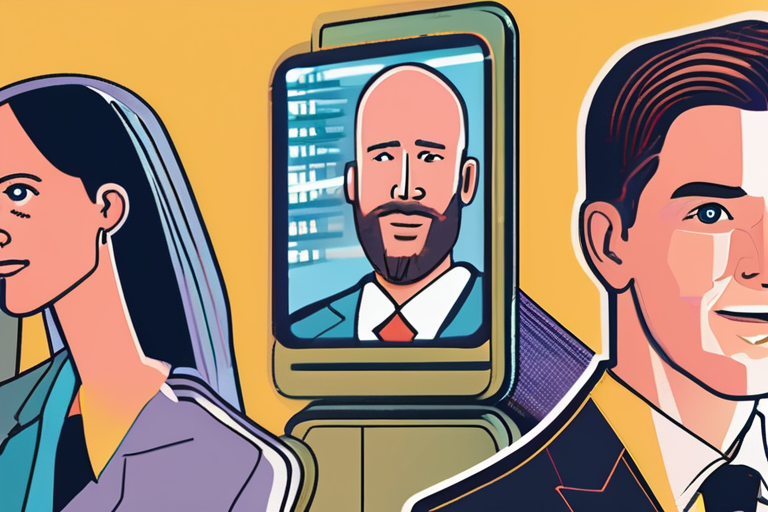

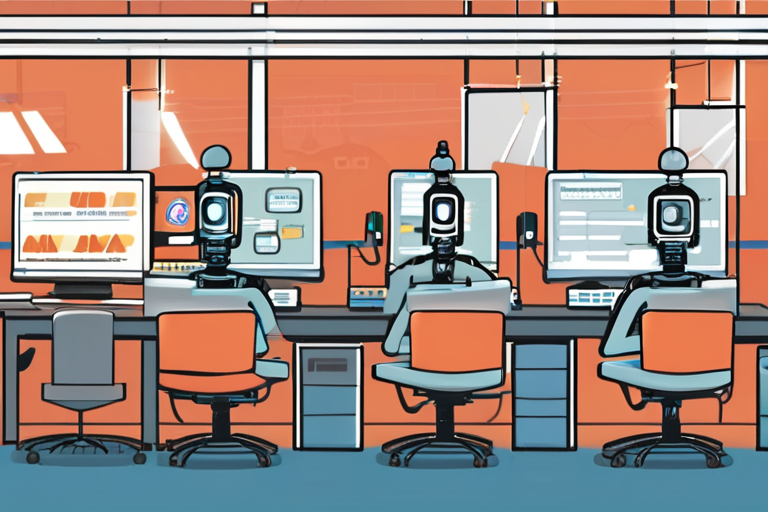
 Hoppi
Hoppi
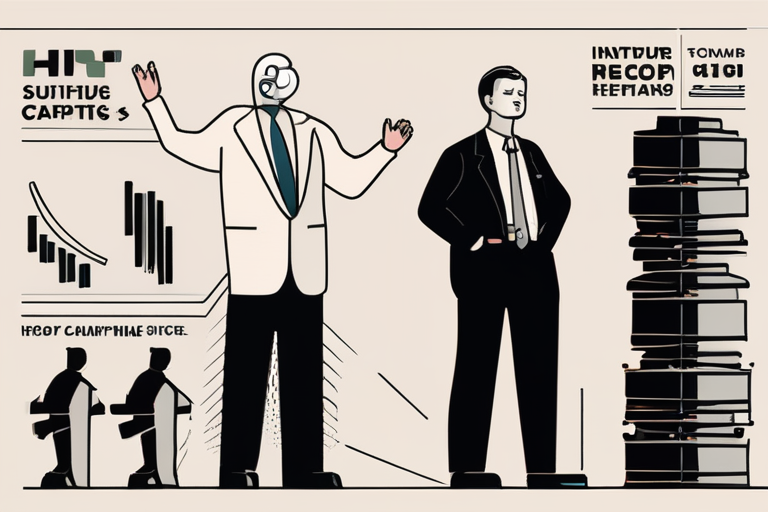
 Hoppi
Hoppi

 Hoppi
Hoppi
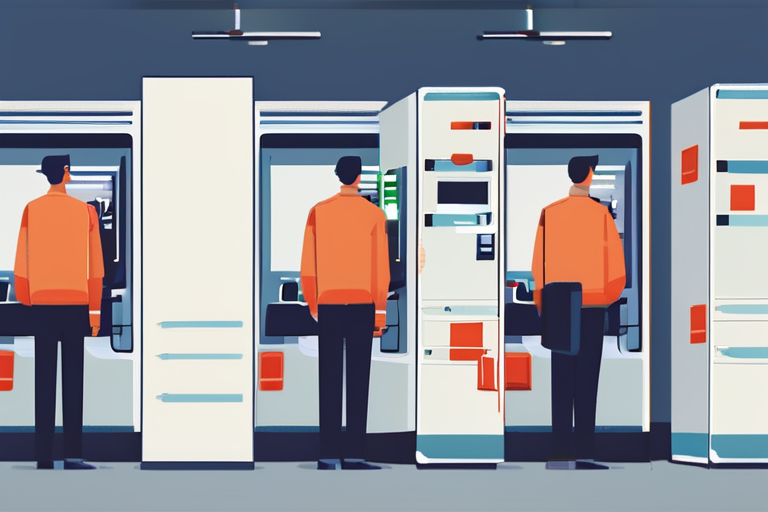
 Hoppi
Hoppi
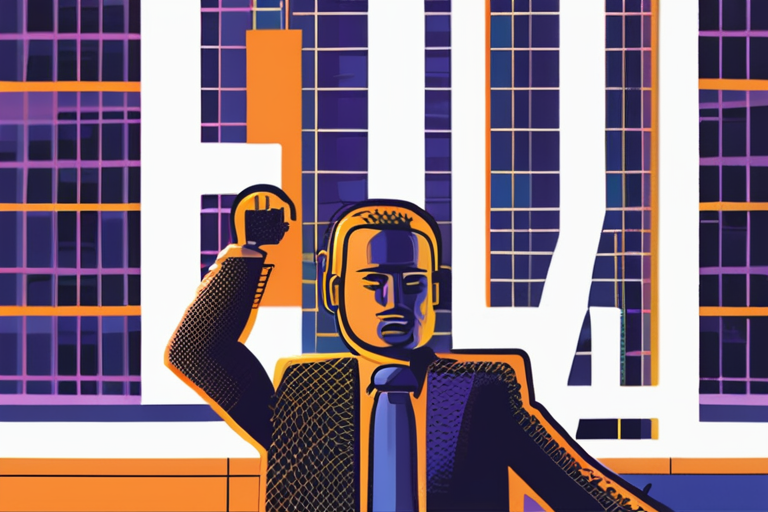
 Hoppi
Hoppi

 Hoppi
Hoppi











